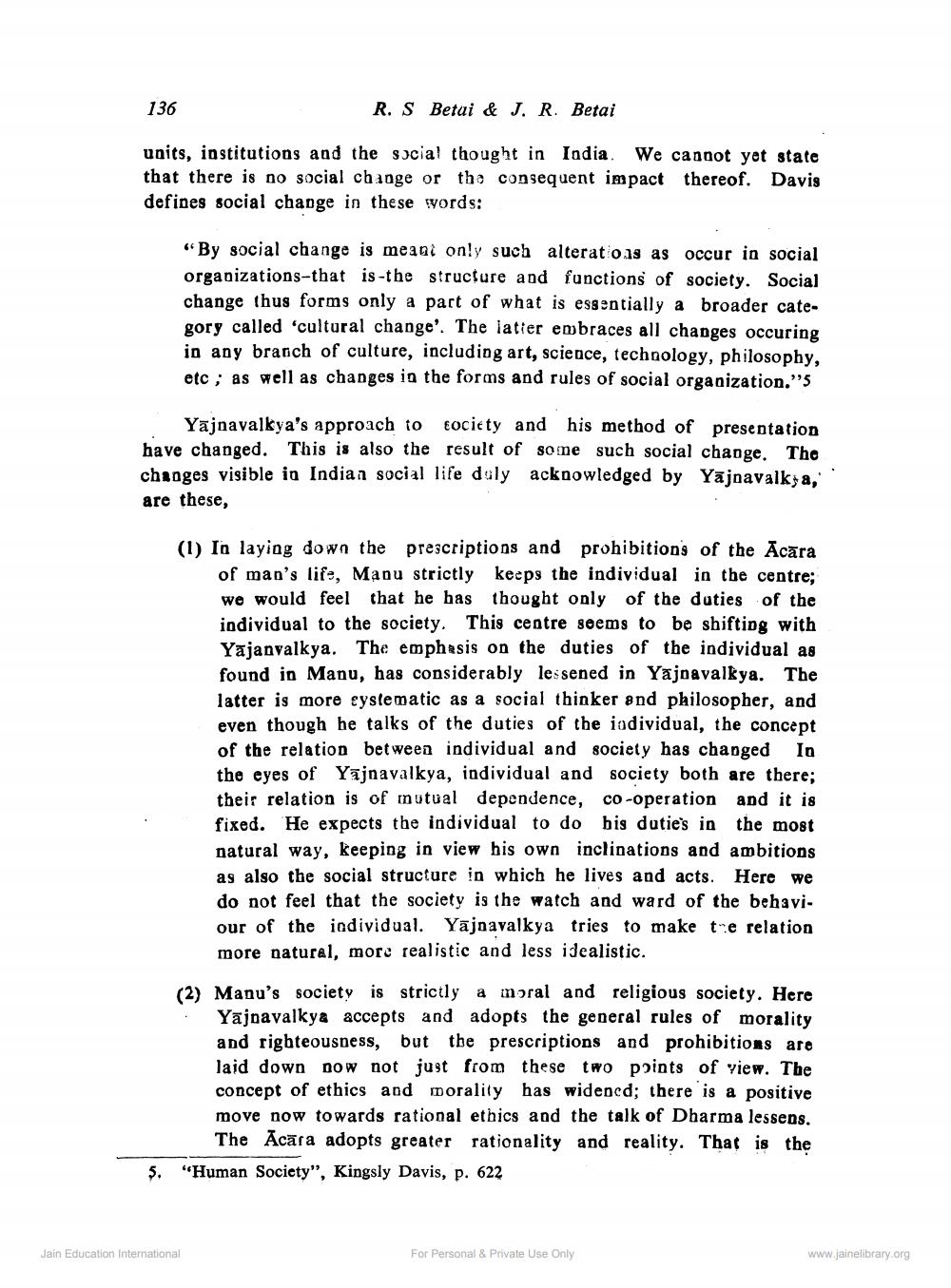________________
136
R. S Betai & J. R. Betai
units, institutions and the social thought in India. We cannot yet state that there is no social change or the consequent impact thereof. Davis defines social change in these words:
“By social change is meant only such alterat ons as occur in social organizations-that is-the structure and functions of society. Social change thus forms only a part of what is essentially a broader category called 'cultural change'. The latter embraces all changes occuring in any branch of culture, including art, science, technology, philosophy, etc; as well as changes in the forms and rules of social organization."'5
Yajnavalkya's approach to cociety and his method of presentation have changed. This is also the result of some such social change. The changes visible in Indian social life doly acknowledged by Yājoavalk, a, are these,
(1) In laying down the prescriptions and prohibitions of the Acāra
of man's life, Manu strictly keeps the individual in the centre; we would feel that he has thought only of the duties of the individual to the society. This centre seems to be shifting with Yajanvalkya. The emphasis on the duties of the individual as found in Manu, has considerably lessened in Yajnavalkya. The latter is more systematic as a social thinker and philosopher, and even though he talks of the duties of the iodividual, the concept of the relation between individual and society has changed In the eyes of Yajnavalkya, individual and society both are there; their relation is of mutual dependence, co-operation and it is fixed. He expects the individual to do his duties in the most natural way, keeping in view his own inclinations and ambitions as also the social structure in which he lives and acts. Here we do not feel that the society is the watch and ward of the behaviour of the individual. Yājnavalkya tries to make te relation more natural, more realistic and less idealistic.
(2) Manu's society is strictly a moral and religious society. Here
Yajnavalkya accepts and adopts the general rules of morality and righteousness, but the prescriptions and prohibitions are laid down now not just from these two points of view. The concept of ethics and morality has widencd; there is a positive move now towards rational ethics and the talk of Dharma lessens.
The Ācāra adopts greater rationality and reality. That is the 5. "Human Society”, Kingsly Davis, p. 622
Jain Education International
For Personal & Private Use Only
www.jainelibrary.org




